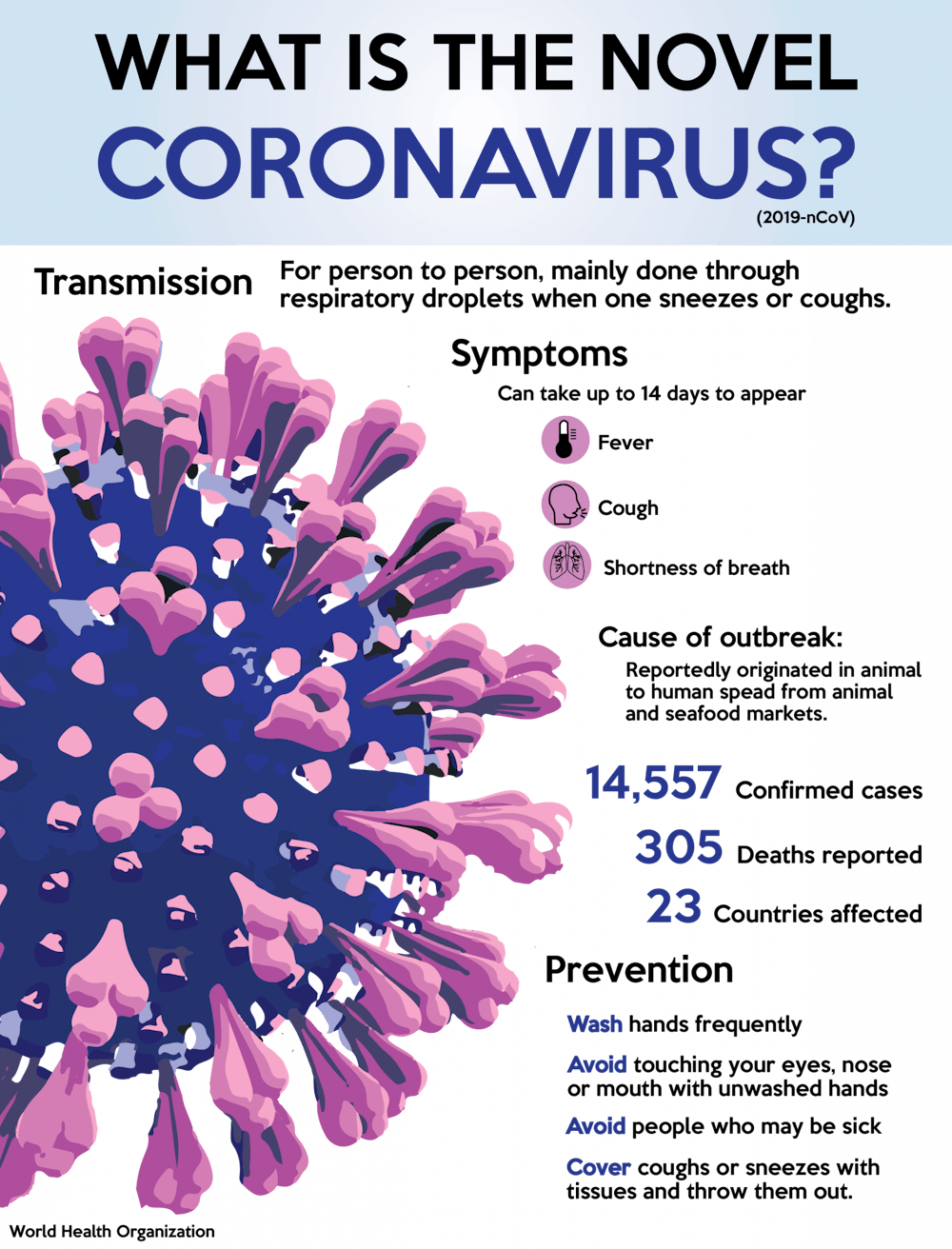The novel coronavirus is spreading throughout the world. The respiratory virus began in Wuhan, China, and there are now more than 14,000 cases as of Feb. 2. Eighteen countries have reported positive cases of the virus, including the United States, which has eight confirmed cases so far.
More than 300 people have died in China so far.
The CDC recommends individuals avoid nonessential travel to China at this time. On Jan. 30, WHO declared the virus a public health emergency of concern after the first human-to-human transmission was reported in the United States.
According to the CDC website, the source of the virus is currently unknown, but experts believe it has an animal connection. While it likely came from animals, it is now spreading from person to person. Experts are not sure how fast transmission can be.

In an email statement, Deborah Beck, executive director of Student Health Services, said while the university recognizes the threat of the virus and is prepared, an outbreak on campus is "extremely unlikely."
"The University has had a public health plan in place for many years. We have reviewed it and updated actions. The most important part is to ensure our students are safe and we are screening for potential travel to and from China," Beck said.
The university is taking preventive measures by not allowing any students, faculty or staff to travel to China as well as updating its screening processes accordingly.
Beck said the university is "extremely confident" in its policies regarding how well it can be prepared for or combat an outbreak.
Despite an outbreak on campus being "unlikely," Beck still wishes for the university to reach out to continue a "culture of caring" towards any enrolled students from China.
"Even though the Coronavirus will unlikely affect our campus, many of our students, faculty and staff have friends and loved ones abroad and will need support and understanding," Beck said.
Xin Tao is a graduate journalism student from Changzhou, China, a city over seven hours northeast of Wuhan. Most of her friends and family have not evacuated from China, and Tao says she is worried about her parents.
“They can’t get out and buy some food like that because [of the virus],” Tao said. “They [wear masks] every day and one Chinese cabbage maybe costs $20.”
USC released a campus health notice on Jan. 30 about the novel coronavirus. In the notice, the university has reported there have been eight confirmed cases in the U.S.: one in Washington State, two in Illinois, three in California, one in Massachusetts and one in Arizona.
Jeff Stensland, director of public relations at USC, said in an email that the university is “being mindful of campus visitors and scholars visiting from China – Following all CDC guidelines for the prevention, diagnosis and treatment of the Novel Coronavirus.”
According to a press release from the university's Student Health Services, all foreign exchange students from Wuhan, China, have been contacted and ensured they are free of symptoms.
Symptoms can include fever, coughing and shortness of breath. Melissa Nolan, an Arnold School of Public Health researcher, said the symptoms are non-specific. Currently, there is no vaccine or cure to combat coronavirus. Little is still known about this new virus, but investigations are continuously on-going.
“Prevention is definitely your best option right now. It would be at least a year, if not five to ten years realistically before we would get a vaccine for this,” Nolan says.
NBC News reported there are about 165 individuals currently being tested for the virus in the United States on Jan. 30. There have been no cases reported in South Carolina.
Information surrounding the novel coronavirus and the outbreak is constantly changing, and there is still uncertainty regarding the way the virus spreads and how it affects humans. Global news organizations such as The New York Times have been keeping live updates on the virus.

